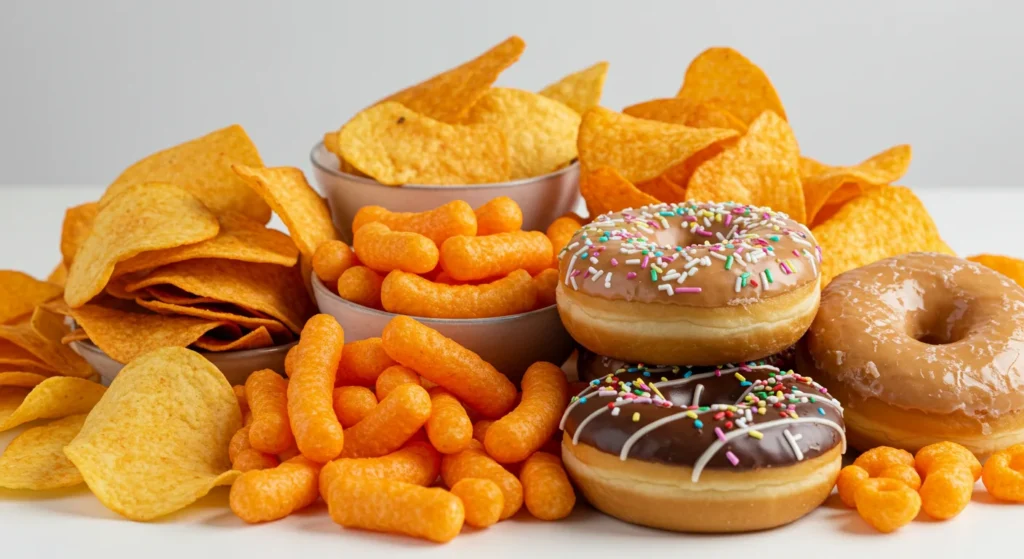Here’s What’s Really Going On
Introduction
You ditched fast food. You started cooking at home. You’ve even swapped soda for water and made space in your day for some exercise. But two weeks later, the scale hasn’t budged. Sound familiar? You ask yourself, “Why am I losing weight so slowly?” Many people feel frustrated when they make healthy changes and don’t see instant results. But there’s a lot going on behind the scenes that can affect how quickly (or slowly) your body lets go of weight.
In this post, we’ll break down the most common reasons weight loss can stall, even when you’re doing everything “right.” We’ll also share simple strategies to help you stay on track, adjust your expectations, and keep moving toward your goals.
1. Your Body Is Adapting
Metabolic Slowdown
When you start losing weight, your body naturally burns fewer calories than it used to. This is called metabolic adaptation, and it’s a survival response. Your body senses fewer calories coming in and tries to conserve energy, making it harder to shed pounds.
Muscle Loss
Even if you’re losing fat, you’re probably also losing a bit of muscle, especially if you’re not strength training. Since muscle burns more calories at rest, losing it can further slow your metabolism. That’s why strength training is so important during weight loss.
Body Recomposition
If you’ve added exercise to your routine, especially resistance training, you might be building muscle while losing fat. Muscle weighs more than fat by volume, so your body might be changing even if the scale isn’t. Focus on how your clothes fit or track your measurements instead of obsessing over your weight.
2. You Might Be Eating More Than You Think
Portion Creep
It’s easy to underestimate portions, especially with calorie-dense foods like peanut butter, nuts, and oils. Even healthy meals can stall weight loss if you’re unintentionally eating too many calories.
Liquid Calories
Drinks like smoothies, flavored lattes, and fruit juices can sneak in a lot of extra energy. Drinking water or herbal tea instead can help reduce overall calorie intake. Drinking water before meals has also been shown to support weight loss by making you feel fuller, according to WebMD.
Track to Stay on Track
Writing down what you eat or using a food tracking app like MyFitnessPal can help you see patterns and stay aware of what’s going into your body. A study from Healthline supports the idea that tracking increases accountability and can help you notice hidden sources of calories.

3. Your Diet May Be Lacking in Protein
Protein plays a big role in weight loss. It helps you feel full, supports muscle maintenance, and even requires more energy to digest compared to fats or carbs. If your meals are low in protein, you might feel hungry more often or risk losing more muscle mass.
According to Mayo Clinic, increasing your protein intake can help keep your metabolism active and reduce your appetite.
4. Processed Foods Can Sabotage Progress
Even if you’re eating fewer calories, the quality of your food matters. Ultra-processed foods can mess with your appetite signals and blood sugar, making it harder to stop eating when you’re full. Swapping processed snacks for whole foods like fruits, veggies, lean protein, and whole grains can make a big difference.
When I gave up fast food for two weeks, I felt proud of the change. But even with that win, I wasn’t losing weight like I expected. That’s because I was still eating packaged snacks at home and not paying attention to portions. Realizing this helped me shift my focus to whole foods and home-cooked meals.

5. Your Lifestyle Might Be Working Against You
Not Moving Enough
Adding exercise to your day helps boost calorie burn, but if your overall activity is low (think lots of sitting), that can limit progress. You don’t need a gym membership — walking, dancing, or doing bodyweight exercises at home can be just as effective.
Skimping on Sleep
Lack of sleep messes with hormones that control hunger and fullness, like leptin and ghrelin. According to Livi, poor sleep can lead to more cravings and worse food choices.
High Stress
Chronic stress leads to elevated cortisol, which can increase appetite and encourage fat storage. Managing stress through journaling, walking, or even 5-minute breathing exercises can support your weight goals.
6. Your Expectations Might Be Too High
Weight Loss Isn’t Linear
Even when you’re doing everything right, weight loss is rarely a straight line. It’s totally normal for your weight to fluctuate daily or to hit plateaus. According to Men’s Health, it’s typical to lose 0.5 to 2 pounds per week — anything more is a bonus.
Track Other Signs of Progress
Sometimes, the scale isn’t the best indicator. Here are a few other things to pay attention to:
| Non-Scale Victories | Why They Matter |
| Clothes fitting better | Indicates inches lost |
| More energy throughout the day | Sign of improved nutrition and activity |
| Improved sleep | Signals better overall health |
| Less bloating | Often a result of eating cleaner |
| Stronger or more endurance | Reflects fitness gains |

7. Health or Medications Might Be a Factor
Some medical conditions can interfere with weight loss. Thyroid disorders, hormonal imbalances, and insulin resistance can all play a role. If you’ve been consistent with your habits for several weeks and aren’t seeing any changes, it might be worth discussing with your doctor.
Certain medications, including antidepressants, steroids, or beta-blockers, can also make losing weight harder. Cleveland Clinic suggests a full check-up if weight changes are unexpected or persist without clear reason.
Conclusion
Losing weight slowly can feel frustrating, especially when you’re making healthy choices. But your body isn’t a machine—it’s complex and needs time to adjust. Small changes still matter, even if the scale doesn’t immediately show it.
If you’ve given up fast food and made better choices, you’re already moving in the right direction. Keep going. Focus on protein, movement, sleep, and whole foods. Track your wins beyond the scale, and stay patient with your journey.
Next step? Pick one area from this list to focus on for the next week. Whether it’s getting better sleep, upping your protein, or walking after dinner, small changes add up. And remember, slow progress is still progress.







